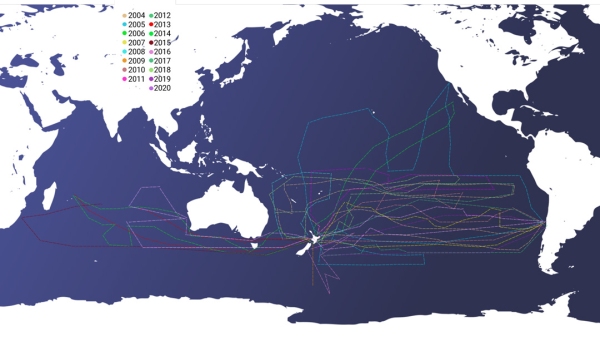Coronavirus border restrictions mean six NIWA staff face more than two months at sea in a bid to keep an international ocean research project afloat.
NIWA’s research vessel Kaharoa leaves Wellington tomorrow to deploy more than 100 remote ocean monitoring Argo buoys in the Indian Ocean.
The free-drifting scientific instruments are part of a major international science project maintaining more than 3800 buoys across the world’s oceans to measure the role the oceans play in our climate and weather systems.
The research is a global research partnership and the Argo floats are supplied by American and Australian collaborators.
But border closures in both Western Australia and the Mauritius Islands mean the six strong crew won’t touch land again till they return to Wellington in early October. It will be the longest trip ever undertaken by one crew on RV Kaharoa.
Coronavirus delays have already disrupted other voyages in the international Argo float programme and NIWA oceanographer Dr Phil Sutton says this could lead to data gaps in the research.
Dr Sutton says science data collected by the Argo project has revolutionised our knowledge of ocean dynamics and this voyage is critical to maintaining the global network.
“The problem with these data series is that they need to be continuous. You are never quite sure what has happened when there is a gap - you can never fill it in.”
“Maintaining coverage is set to become a challenge without regular missions.”
NIWA has deployed more than 1100 Argo floats in the Pacific, Indian and Southern Ocean over 22 voyages since 2004.
RV Kaharoa will have to head into Freemantle to refuel but COVID quarantine procedures mean that the crew will not be able to leave the boat. The crew are also likely to face a further quarantine period on their return to Wellington at the end of their 70-day voyage.
Dr Sutton says the crew of 25 metre Kaharoa will be facing some significant seas and winds ahead, particularly on their journey through the Southern Ocean but they are set on getting their scientific instruments into the water.
“While the voyage will be a long one for the small crew, they are absolutely determined to deploy the floats.”
The International Argo Project is an international collaboration which has maintained a global array of around 3800 free-drifting floats deployed throughout the world’s oceans since the early 2000s.
The floats measure temperature and salinity in the top 2000m of the ocean and send data back via satellite every 10 days.
The buoys provide data vital to understanding the role the oceans play in our climate and weather systems. It also provides insights into the way ocean conditions impact fish stocks and biodiversity.
The floats have a lifespan of about five years and all data are freely available.


